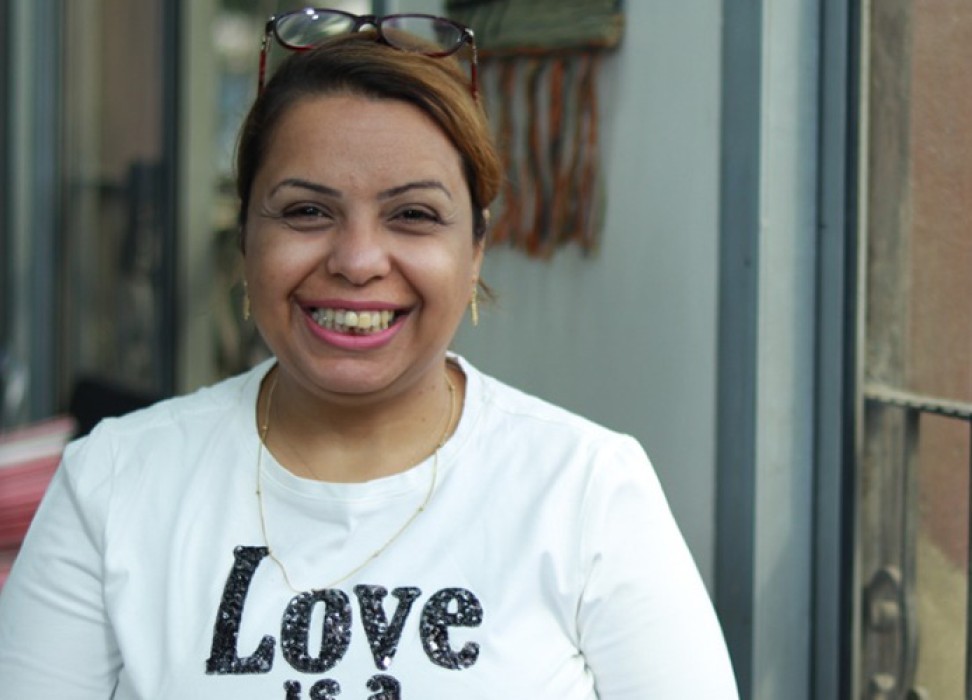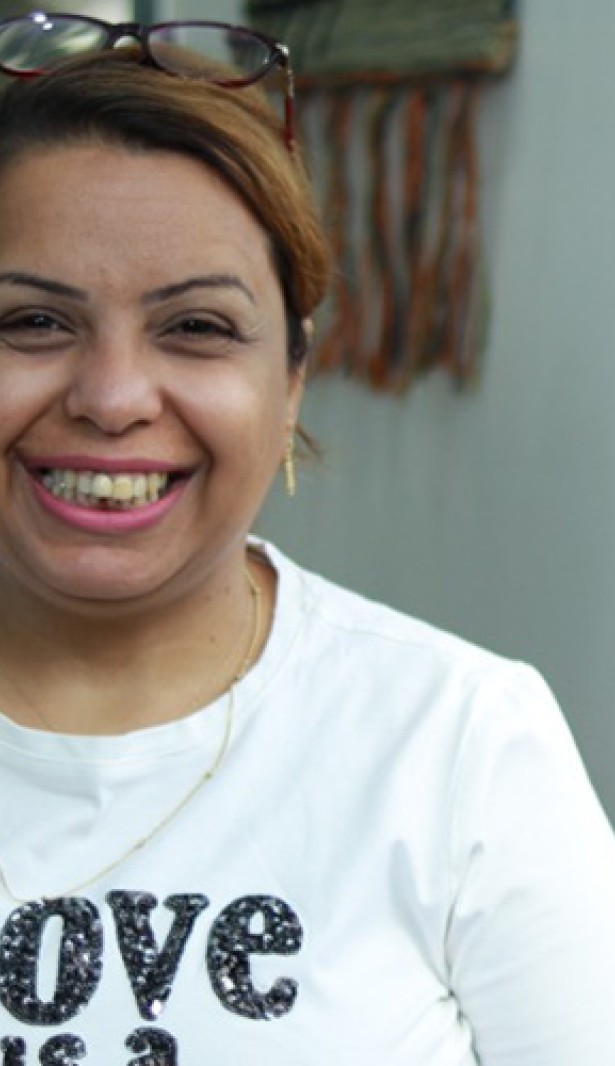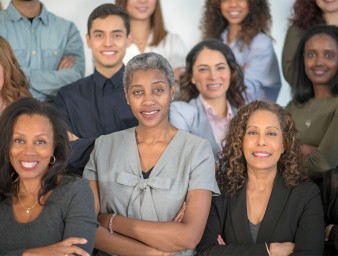Responding to the needs of women, ‘first responders’ to Egypt’s COVID-19 crisis
25 February 2021

Entisar Elsaeed, Founder and Director of the Cairo Foundation for Development and Law, has seen the increasing burden of the COVID-19 pandemic on women in Egypt. She decided to focus the work of her Foundation on the country’s most vulnerable during the crisis.
At the height of the COVID-19 pandemic, the challenges facing women in Egypt became more difficult. They had to play a new added role as a family doctor, monitoring the health conditions of family members and working to improve it; providing services and implementing measures to protect loved-ones from infection; caring for those infected in the infected by the coronavirus; and intensifying the usual care provided to the elderly.
“Women practically have become the first responders directly responsible for protecting family members, and the ones who bear responsibility for whether or not they will get infected,” said Entisar Elsaeed, Founder and Director of the Cairo Foundation for Development and Law. “That role has become one of the most important challenges that women face, especially those who belong to lower social, economic, and cultural groups.”
Their situation is compounded by the financial needs of families, as women have been responsible for fulfilling those needs, especially in light of the precautionary lockdown measures put in place by the Government. The most vulnerable, in particular those working in the informal economy, have suffered even more marginalization because of shortcomings by the authorities and the media who neglected to provide financial aid and other social security measures, the supplies necessary to prevent the spread of the infection, and public information on the pandemic.
As women’s working hours inside the home increased during lockdowns, often exceeding more than 15 working hours a day simply to meet their families’ needs, so did the presence of men inside the home. This brought on another worrying challenge: increasingly higher rates of domestic violence against women.
“Sexual relationships also suffered tensions during the lockdowns,” she added. “This was a very revealing result as it reflected how the absence of sexual education for both men and women impaired their ability to access correct and safe sexual information.”
At the beginning of the COVID-19 pandemic, Elsaeed’s Foundation started to rethink its operations on different levels. First, how to protect the Foundation’s workers by examining what measures were required for physical distancing - taking into account their commitments towards their families, their job responsibilities, and the continued activities of the Foundation.
“We also had to figure out how the Foundation could take measures that are flexible enough for these exceptional times, and how to add new activities to address these unusual circumstances or postponing others without disturbing the strategic goals of the institution,” Elsaeed added.
The Foundation decided to focus its activities on the impact of the precautionary measures announced by the Egyptian Government on women - especially the marginalized, poor, and irregular workers, migrant workers - and other most affected groups, inspiring themselves from the experiences of countries in Africa and the Middle East with similar economic, social, and political contexts. They have published research papers on economic and social conditions of women during the pandemic.
“We also thought about how best to inform women on precautionary measures and physical distancing. We produced awareness-raising papers to prevent infection with the coronavirus, using Egyptian colloquial language,” Elsaeed said. “We also set up a hotline and held online group meetings to provide psychological support and advice to women survivors of sexual violence.”
25 February 2021




